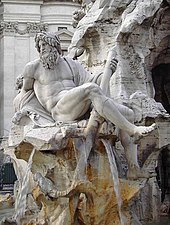
7. Analysis- a method in which a work or idea is separated into its parts, and those parts given rigorous and detailed scrutiny.

8. Anaphora- a device or repetition in which a word or words are repeated at the beginning of two ore more lines, phrases, clauses, or sentences.

9. Anecdote- a very short story used to illustrate a point.

10. Antagonist- a person or force opposing the protagonist in a drama or narrative.

11. Antithesis- a balancing of one term against another for emphasis or stylistic effectiveness.

12. Aphorism- a terse, pointed statement expressing some wise or clever observation about life.

13. Apologia- a defense or justification for some doctrine, piece of writing , cause , or action; also apology.
14. Apostrophe- a figure of speech in which an absent or dead person, an abstract quality, or something inanimate or nonhuman is addressed directly.
15. Argument- the process of convincing a reader by proving either the truth or the falsity of an idea or proposition; also, the thesis or proposition itself.

16. Assumption- the act of supposing, or taking for granted that a thing is true.
I assume that this is fake.

17. Audience- the intended listener or listeners

18. Characterization- the means by which writer reveals a character's personality.
19. Chiasmus- a reversal in the order off words so that the second half of a statement balances the first half in inverted word order.
20. circumlocution- a roundabout or evasive speech or writing, In which many words are used but a few would have served.

21. Classicism- art, literature, and music reflecting the principles of ancient Greece and Rome: tradition, reason, clarity, order, and balance

22. Cliché- a phrase or situation overused within society..

23. Climax- the decisive point in the narrative or drama; the pint of greatest intensity or interest at which plot question is answered or resolved.
24. Colloquialism- folksy speech, slang words or phrases usually used in informal conversation.
25. Comedy- originally a nondramatic literary piece of work that was marked by a happy ending; now a term to describe a ludicrous, farcical, or amusing event designed provide enjoyment or produce smiles and laughter.
26. Conflict- struggle or problem in a story causing tension
27.Connotation- implicit meaning, going beyond dictionary definition
28.Contrast- a rhetorical device by which one element (idea or object) is thrown into opposition to another for the sake of emphasis or clarity.
29.Denotation- plain dictionary definition
See 27. ^
30.Denouement- loose ends tied up in a story after the climax, closure, conclusion.
No comments:
Post a Comment